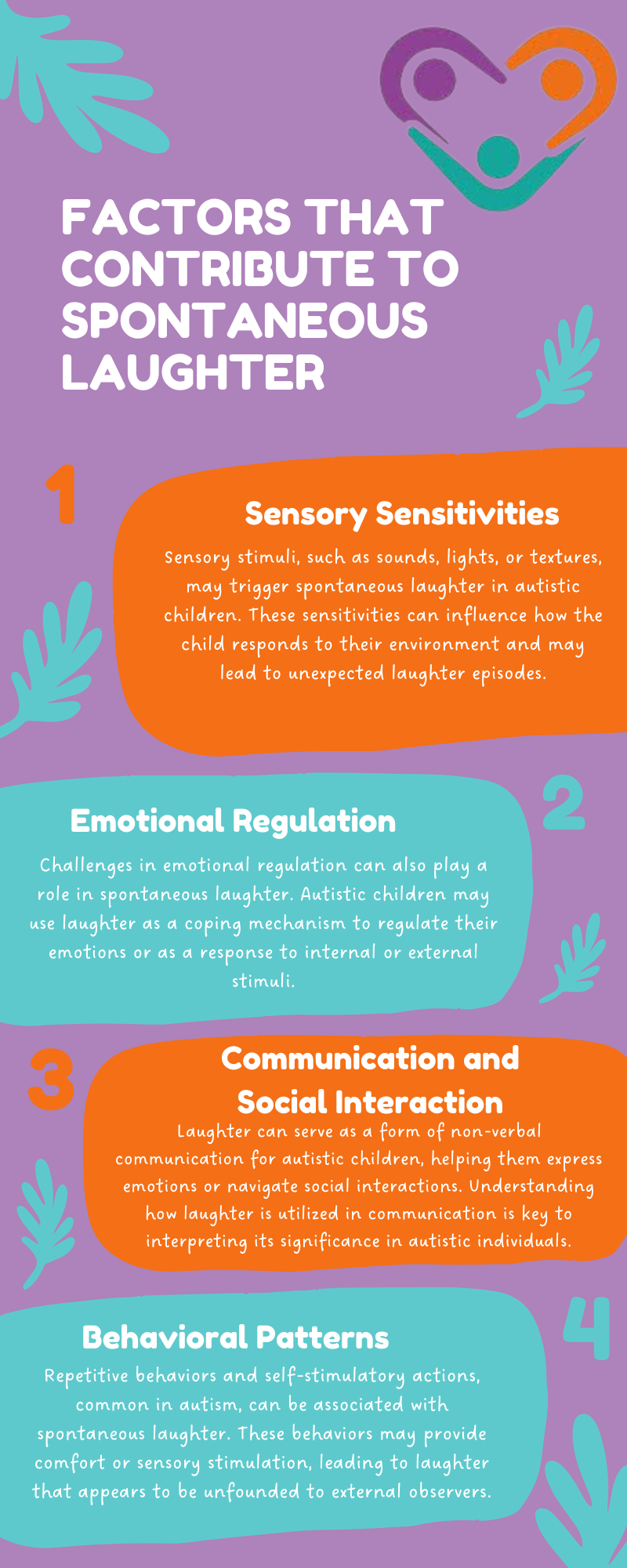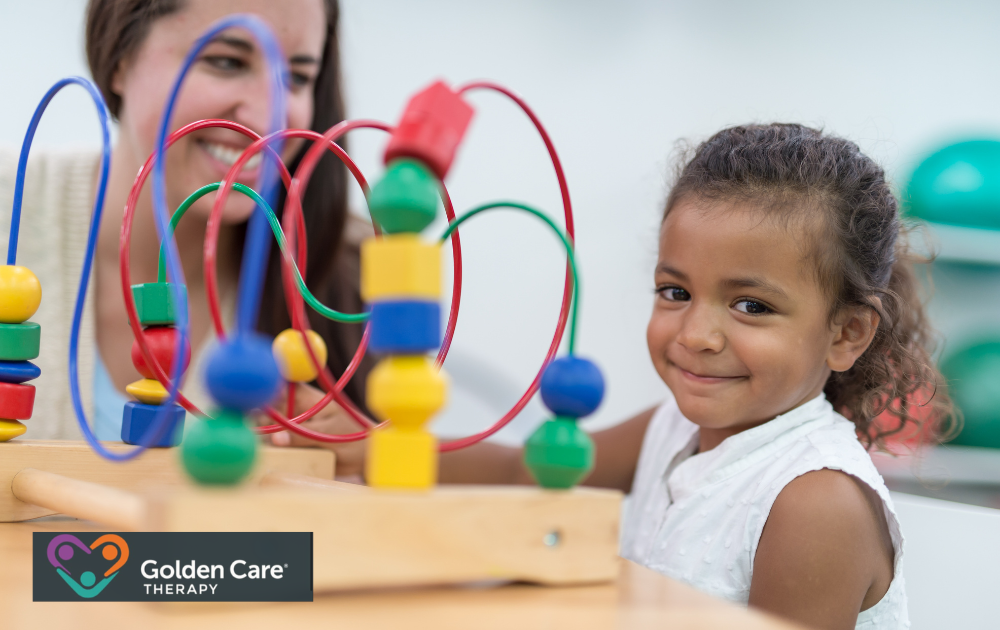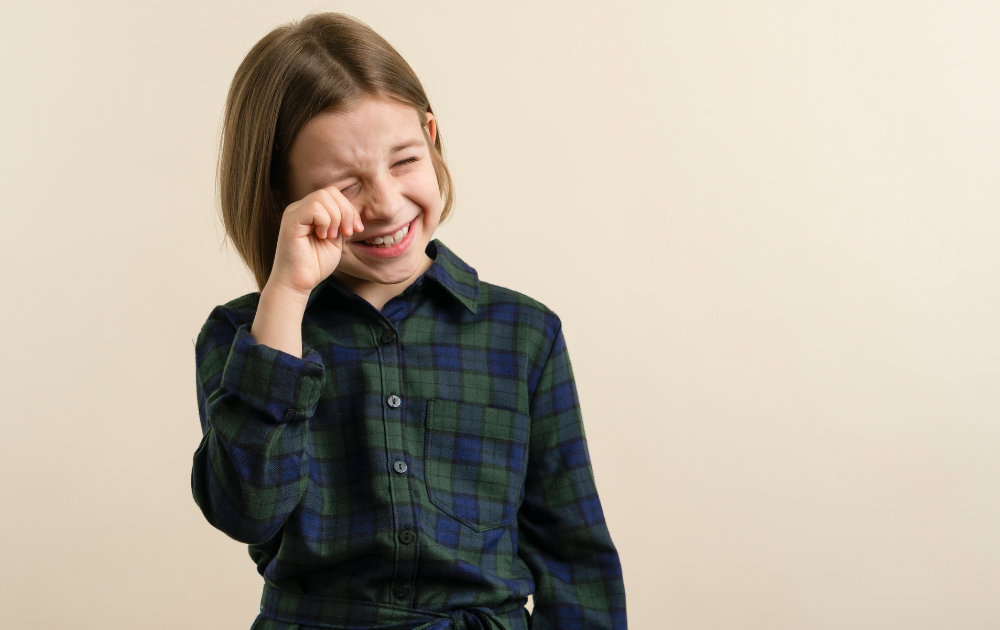It can be puzzling and even a bit concerning when your autistic child laughs unexpectedly, without any clear trigger. You might wonder if something is wrong or if they’re just having fun in their way.
Laughter is often seen as a response to something funny or enjoyable, but for some children on the autism spectrum, laughter can happen at times when you least expect it. Understanding the reasons behind this behavior can help you better connect with your child and create a more comfortable environment for both of you.
Let’s take a closer look at why your child might laugh at seemingly random moments and what it could mean.
Why Does My Autistic Child Laugh for No Reason?
Autistic children may laugh for various reasons that can sometimes seem confusing or unrelated to what is happening around them. In some cases, laughter may be a response to sensory issues, such as feeling overwhelmed by certain sights, sounds, or textures.
For example, if a child experiences something that overstimulates their senses, their laughter could be a way of coping with or expressing their discomfort, even though it might seem like they are laughing without cause.
This reaction is often a way for the child to release tension and manage feelings of stress or confusion.
Additionally, laughter in autistic children can sometimes be linked to social communication differences. They might laugh because they perceive something as funny in a way that others do not understand, or they might use laughter to express excitement or happiness.
In other cases, laughter might be a self-soothing behavior, helping the child regulate their emotions or cope with situations that are difficult for them to process. Understanding the context in which the laughter occurs and observing other signs can provide more insight into the specific reasons behind it.
Factors Contributing to Spontaneous Laughter
Spontaneous laughter in autistic children often presents itself as laughter seemingly without an apparent cause or stimulus. This behavior can sometimes be misunderstood or misconstrued by individuals unfamiliar with autism.
Understanding the underlying reasons behind this laughter is crucial in offering appropriate support and fostering better communication with autistic individuals.
Several factors can contribute to the manifestation of spontaneous laughter in autistic children. These factors often intertwine with the unique characteristics of autism and may vary from one individual to another. By identifying and acknowledging these contributory factors, caregivers and individuals supporting autistic children can better navigate and address this behavior in a constructive manner.

Examining the phenomenon of spontaneous laughter in autistic children and recognizing the factors influencing this behavior allows caregivers and individuals within the autism community to enhance their understanding and support mechanisms, creating a more inclusive and nurturing environment for autistic individuals.
Impact of Sensory Sensitivities on Spontaneous Laughter
Sensory sensitivities play a significant role in shaping the laughter patterns of autistic children. These sensory sensitivities can manifest in various ways, impacting how they perceive and react to stimuli in their environment.
For some autistic individuals, certain sensory stimuli can trigger laughter responses, even in situations that may not typically elicit laughter in neurotypical individuals.
Autistic children may experience heightened sensitivity or hypo-sensitivity to sensory inputs such as noise, touch, taste, smell, or visual stimuli. These sensitivities can cause them to respond with laughter as a coping mechanism or as a way to regulate their sensory experiences. Caregivers and individuals need to recognize these sensitivity-driven reactions to laughter and provide support accordingly.
Sensory overload can also overwhelm autistic children, leading to heightened stress levels and emotional responses, including laughter. When faced with an overwhelming amount of sensory input, autistic individuals may exhibit laughter as a means of self-regulation or as a response to feeling anxious or uncomfortable.
In such situations, laughter can serve as a release mechanism for the built-up tension caused by sensory overload. Caregivers and individuals must identify the signs of sensory overload and understand how it can influence laughter in autistic children.

Emotional Responses and Laughter Triggers
Emotional regulation can vary greatly among autistic children, and this can influence how they express and perceive laughter. Certain situations or stimuli may act as triggers for spontaneous laughter, even if the context seems unrelated to typical sources of amusement.
Understanding these triggers is essential in providing appropriate support and intervention.
For some autistic children, laughter serves as a coping mechanism in challenging or overwhelming situations. The act of laughing may help regulate emotions, provide a sense of comfort, or serve as a form of self-expression when verbal communication is challenging.
Recognizing laughter as a coping strategy underscores the importance of creating a supportive environment where children feel safe to express themselves.
Understanding the interplay between emotional regulation, laughter triggers, and coping mechanisms is crucial in providing effective support for autistic individuals. By acknowledging the complexities of emotional experiences and embracing the use of laughter as a communicative tool, caregivers and individuals alike can navigate the nuances of autistic laughter with empathy and understanding.
Repetitive Behaviors and Laughter
Autistic children may also exhibit repetitive behaviors as part of their daily routines or in response to specific triggers. These behaviors can range from hand-flapping and rocking to vocal stimming and echolalia.
In some cases, repetitive behaviors may be linked to feelings of comfort or self-regulation. When it comes to laughter, repetitive behaviors can sometimes coincide with episodes of spontaneous laughter.
The repetitive actions may serve as a way for autistic children to cope with overwhelming emotions or sensory stimuli, leading to moments of joy and laughter as a form of release.
Self-stimulatory behaviors, also known as stimming, are common among individuals with autism. These behaviors encompass a wide range of actions such as hand movements, body rocking, and repetitive vocalizations. Stimming can serve various purposes, including self-soothing, sensory modulation, and self-expression.
In the context of laughter, self-stimulatory behaviors can sometimes be accompanied by bursts of spontaneous laughter. Autistic children may engage in stimming behaviors that have a calming effect on them, ultimately leading to moments of joy and amusement expressed through laughter.

Conclusion
Understanding why your autistic child laughs for what might seem like no reason can be puzzling at first, but it often points to how they experience the world in their own unique way.
Laughter may be their way of expressing joy, excitement, or even discomfort in situations that others might not fully grasp. As parents, caregivers, or loved ones, it’s important to be patient and observe the context of each moment.
This can help uncover the deeper meaning behind the laughter and how it fits into their broader emotional world.
With time, you’ll find that these moments of laughter can become an opportunity for connection, understanding, and shared joy. At Golden Care Therapy, we believe in creating meaningful bonds through ABA therapy, helping individuals thrive in both social and personal environments. Our team provides top-notch autism services in New York, New Jersey, Indiana, Georgia, and Florida, tailoring each approach to meet the unique needs of every individual.
We’re dedicated to supporting your loved ones with compassion and expertise. Contact us today to learn more about how our ABA therapy can help foster growth and success for your family.
Sources:



